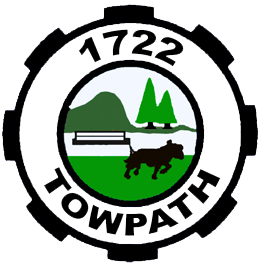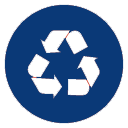Homeowner Tree Resources

Homeowner Tree Resources
If you are concerned about the health of your trees or want confirmation whether or not a tree on your property is affected by the emerald ash borer, spotted lanternfly, or a bacterial leaf scorch, the Shade Tree Commission recommends that you seek the advice of a certified tree expert before taking a tree down. NJ Board of Tree Experts listing of certified tree experts.
🌳 Trees are Important to Our Town!
A thriving urban forest offers many advantages to communities. Here are just a few:
- Homes with trees have higher property values.
- Green space plays a major role in improving mental and physical health.
- Neighborhoods with trees are 7-9° degrees cooler than those without.
- Trees reduce energy costs up to 25% by shading buildings & protecting them from winter winds.
- Trees absorb carbon dioxide in the atmosphere, mitigating the effects of climate change.
- Trees help absorb the sounds of traffic in urban areas by 40%.
- Trees play an important role in lessening damage from urban flooding.
🌳 Tree Care
Useful tree care links for homeowners:
- Tree Care Tips & Techniques - Arbor Day Foundation
- How to Prune Trees - US Forest Service
- Tree Owner's Manual - US Forest Service
- NJ Board of Tree Experts Listing of certified tree experts in NJ
🌳 Recommended “DO NOT PLANT” Trees and Shrubs
TREES: Norway Maple
Tree of Heaven
Mimosa
Ash
Callery Pear
SHRUBS: Japanese Barberry
Autumn Olive Euonymus
Burning Bush
Japanese Spirea Viburnum
🌳 NJ Tree Pest Alerts
The NJ Forest Service (NJFS) monitors various tree health threats. While most insects and diseases are part of the natural ecosystem, the NJFS is mostly concerned with invasive tree health threats that spread quickly or can affect otherwise healthy trees nearby.
Listing of current health threats to NJ trees visit Forest Health Program in New Jersey
🌳 Residential Curbside Collection of Small Branches, Twigs, Small Shrubs, Leaves, and Grass Clippings
The DPW Department collects small branches, twigs, shrub & brush trimmings, grass clippings and leaves in marked re-usable containers (30 gal. max.) or paper biodegradable bags (available for purchase at the DPW building). DPW prefers the use of reusable containers. In the fall months, DPW crews follow a weekly curbside leaf collection schedule.
For more information about the DPW’s Pick Up Schedule & Curbside Leaf Vacuum Collection Schedule visit the DPW webpage or call 973-366-2200 x3129.


%20(5).gif)







